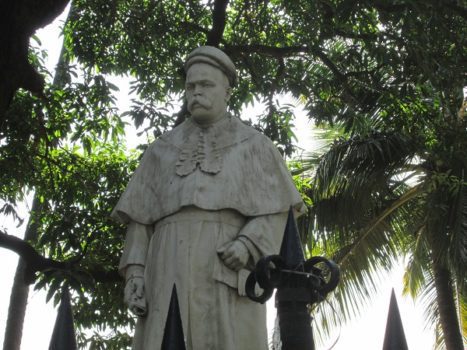RTIwala Explains: A silent fighter, MG Ranade was a calm and patient optimist. His remarkable contributions to the reformation of his motherland is what he’s remembered for. Here, we tell you why he is a hero, not celebrated enough.
[amazon_link asins=’8170335450,8121924030,9332588031,8183576532,9332588023′ template=’ProductCarousel’ store=’wwwrtiwalain-21′ marketplace=’IN’ link_id=’f33ea547-fd66-11e7-a2c5-a30ce229e8b7′]
How were Mahadev Govind Ranade’s childhood and early life?
Mahadev Govind Ranade was born on January 18, 1842, in Niphad, a Taluka town in Nashik district, Maharashtra in a Maharashtrian Chitpavan Brahmin family. His father was a minister. At the age of six, he attended a Marathi school in Kolhapur and was later transferred to an English school in 1851. At the age of 14, his father sent him to study in the Elphinstone College, Bombay.
Also Read: Why Do We Celebrate National Youth Day?
He acquired B.A. degree in the year 1862 and then obtained L.L.B. from the Government Law School in 1866. He achieved distinctions in all his degree courses and remained a scholarship holder almost throughout his academic career.
How Ranade’s career lead him to reform the nation during British Raj?

In 1871, he was appointed as the Presidency Magistrate, rank for the fourth judge in the Bombay Small Causes Court. During his 7 years as a judge in Bombay (now Mumbai) he worked for social reform in the areas of child marriage, widow remarriage, and women’s rights. In 1884, he was elected as the Judge of the Poona Small Causes Court. He became a member of the Bombay High Court in 1893.
In 1885, he also helped in the formation of the Indian National Congress Party, which essayed a major role in the Independence Movement of India. His noticeable work included books on Indian economics and on Maratha history which includes ‘Rise of the Maratha Power‘ (1900). He served as dean of arts at the Bombay University and encouraged the translation of English into vernacular languages into the university curriculum.
How Ranade’s work influenced India in that reformation era?

Ranade has been called the father of Indian economics for urging (unsuccessfully) the British Government to initiate industrialization and state welfare programs. He was an early member of the Prarthana Samaj (“Prayer Society”), a Hindu movement inspired by the Brahmo Samaj, advocating principles of the ancient Vedas. He also established the Social Conference movement, which worked against child marriages, the shaving of widows’ heads, and spending heavily on marriages and other social functions. He actively supported widow remarriage and female education and raised his voice in support of the abolition of child marriages.
Also Read: Franchising In India: The Need for Revolution
Ranade inspired many other Indian social reformers; amongst them was the educator and legislator Gopal Krishna Gokhale, who carried on Ranade’s reform work after his death on January 16th, 1901.
[amazon_link asins=’8170335450,8121924030,9332588031,8183576532,9332588023′ template=’ProductCarousel’ store=’wwwrtiwalain-21′ marketplace=’IN’ link_id=’f33ea547-fd66-11e7-a2c5-a30ce229e8b7′]
Many decades have passed but what remains are the impression and great acts of these social reformers. They managed to bring revolutions by making radical changes in the society. Their contributions were simple but yet eminent souls towards humanity, which guided the nation to the new beginning.






















































